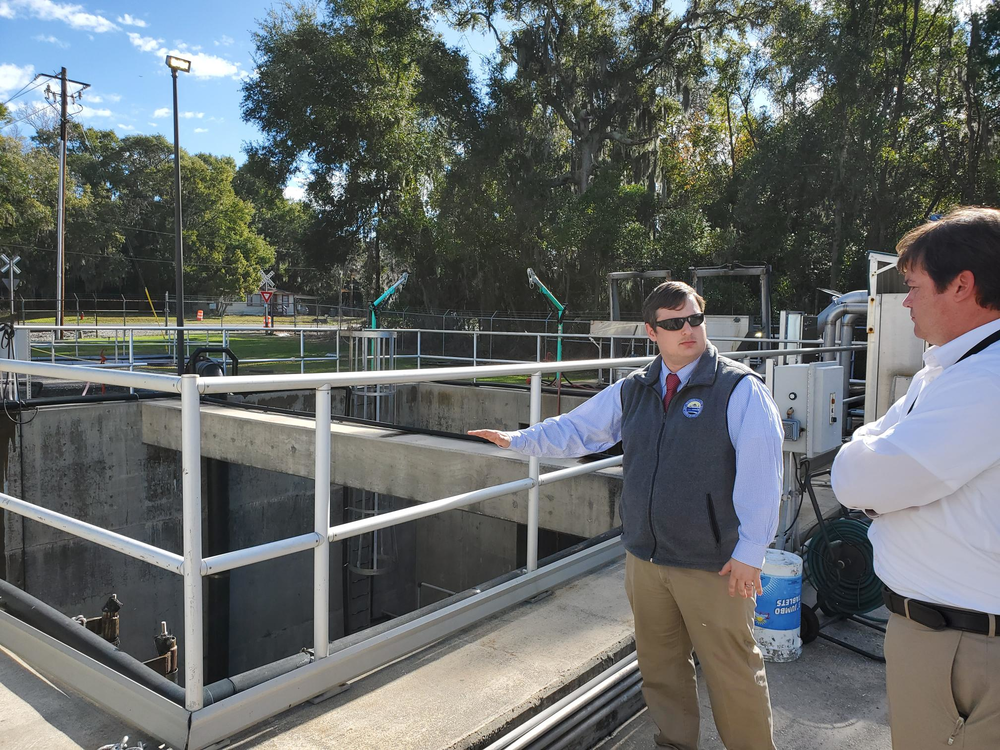
Caption
Brunswick-Glynn County Joint Water-Sewer Commission Executive Director Andrew Burroughs and Director of Engineering Todd Klein stand by the wet well at the Academy Creek Wastewater Treatment Plant. Its low walls mean water from a flood could infiltrate it.
Credit: Emily Jones/GPB News

